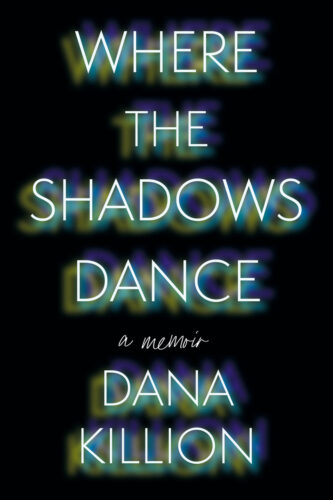I found my husband sprawled on the floor of the walk-in closet. His mouth open. His breath loud. His body rising with each inhale of air into his lungs. I stared down at him, my mind a tangle of worry and confusion. Disgust sat at the edges of my love.
This wasn’t the first drunken night, nor was it the first time he’d been able to conceal the amount of alcohol he’d consumed. It wasn’t even the first time he’d passed out. But it was the first time booze had laid him flat on the spot, leaving him unable to remain upright or walk himself to our bed not ten feet away.
The earliest signs of a substance problem in my marriage were barely signs at all. An empty beer bottle strangely under the seat of his car. A night he’d fallen asleep after dinner in front of the fireplace, and no amount of effort would wake him. They were odd of course but my alarm bells merely whispered to me. It was naivety I imagine. I simply had no understanding of the subtleties of his disorder.
And of course, it went on, drinking escalating into the need for tough, tearful conversations. Conversations that led with worry about his health and his stress level. Each time my concern was seemingly met with appropriate marital understanding and acknowledgment. He would agree, explain away the behavior as simply a stressful point in his work life that didn’t require worry, and the drinking would moderate. For a while.
Inevitably it would rear up weeks later, sometimes as much as a few months would pass before the telltale bloodshot, glazed over eyes returned. And the tough conversations became tougher as the reality of an addiction issue became impossible to ignore. I would point out the risk of a car accident, the risk of liver disease, my terror at the thought of our children being in the car if he drove impaired. He would nod thoughtfully, responding respectfully to my worry, but nothing changed for long, not really, other than the cycle repeating. And repeating.
At first, I assumed it was me. I must not be saying it right. Must not be using the right words, the right force. I must not be communicating my fear accurately. So, I’d search for new words.
Over time the drinking accelerated, as did the harshness of our conversations and the harshness of the consequences. I asked him to leave our home one night. I told him therapy was a new condition of marriage. I explained for the umpteenth time my fears.
The nodding and apologies and promises continued. So did the booze, but now hidden under polished veneer as his drinking became secret.
I would lie in our bed in the middle of the night, smelling the stench of vodka as it metabolized, re-evaluating my strategy, contemplating what new words I could pull out from the recesses of my gut that would convey the seriousness of the issue. How did this intelligent man not see where this was heading? Health issues, accidents, a marriage in crisis? Did he not see how much I loved him? Did he not see my fear?
Or did he not love me?
My mind clawed for answers, searching for the framework of logic that would explain the reality of disease, which was abundantly clear to me, yet seemingly elusive to him. There had to be some missing explanation or thread out of place that I was failing to understand, I concluded, still assuming the code was mine to find.
Then a DUI landed him in jail.
I remember the call so clearly. The embarrassed, sorrow-filled tone in his voice when he said, “I’ve hit bottom”, then explained where he’d spent the night. We were both traveling that weekend, me for work, he to visit family, and I hadn’t been able to reach him all evening. He phoned in the morning as I stood on the floor of a convention center, minutes away from needing to put on the happy face of a salesperson.
“Good,” I thought, my mind torn between love and anger. Maybe an orange jumpsuit and a mugshot would communicate what I apparently hadn’t been able to. And it seemed to for a while. But just months later, his driver’s license retained, and a skilled attorney working the first offense angle, the drinking was back, and my husband was now chastising the cop who arrested him for his rudeness.
This is the mind of addiction. Compartmentalization, excuses, avoidance of the real problem. They are the tools the disorder inserts to preserve what is most important, the fix.
And we as loved ones, we are using the tools we have, but our tools are layering logic on a disease that has none.
Inevitably, we reached “You can have me. Or you can have vodka. Chose.” He chose me, agreed to in-patient treatment. But even as he was stepping onto the plane for the journey to the treatment center, he had still not internalized his addiction issues. He entered rehab, as many do, still convinced he had control of his drinking, but also wanting his marriage. I never knew what thoughts played out in his mind as his phone was confiscated and his bags searched for contraband, but anger and “I don’t deserve to be treated like this” were likely part of the emotion. Acceptance of his illness not yet arrived.
But it came, finally, in the yellowed eyes of jaundiced patients and men whose health was so fragile they needed wheelchairs. There he finally saw his future. And those men were the final trigger that cleared the last fog of drink allowing logic to again enter the conversation.

Dana Killion is an accomplished author known for her captivating mystery novels and powerful memoir. Drawing from her own turbulent life and her husband’s addiction, Dana’s memoir, Where the Shadows Dance, delves into the depths of personal trauma and the sacrifices made by women for the sake of others. Her memoir is a testament to strength and resilience, reflecting her own journey of reinvention. Currently based in Tucson, Arizona, Dana enjoys a snow-free life alongside her feline companion Isabel as she continues to mend her heart.



 Follow Us On Instagram
Follow Us On Instagram
